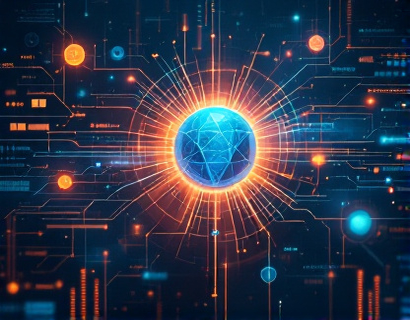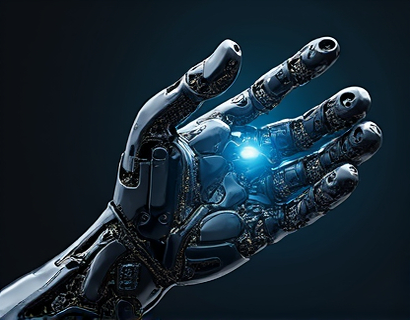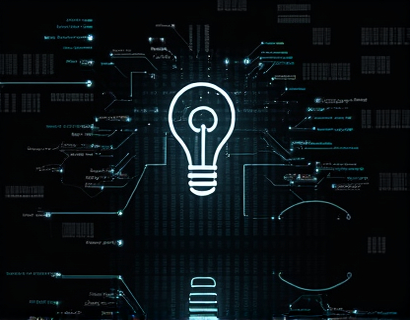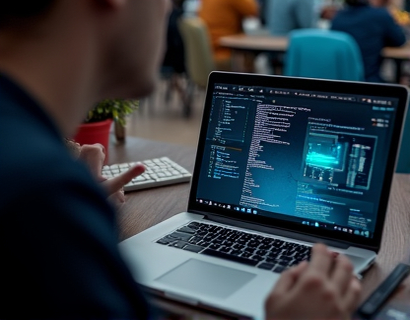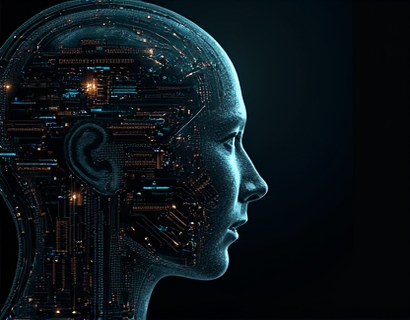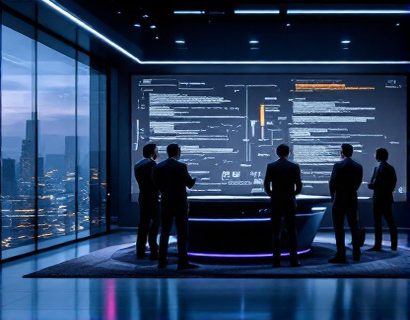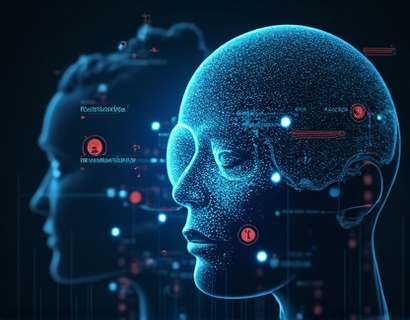AI-Powered Conflict Resolution: Navigating Adversarial Challenges with Intelligent Chat Solutions
In an era where conflicts are inevitable, both in personal and professional realms, the need for effective conflict resolution strategies has never been more critical. Traditional methods often fall short in addressing the complexity and nuance of modern adversarial situations. This is where AI-powered tools come into play, offering a revolutionary approach to navigating and resolving conflicts. These intelligent chat solutions leverage advanced artificial intelligence to provide personalized strategies and insights, empowering users to achieve strategic success in managing adversarial challenges.
The integration of AI in conflict resolution is not just a novel concept but a practical solution that has shown promising results. By analyzing vast amounts of data and learning from diverse scenarios, these systems can offer tailored advice and solutions that traditional methods might overlook. The core advantage lies in the ability of AI to process information rapidly, identify patterns, and suggest actions that are data-driven and contextually relevant.
Understanding AI in Conflict Resolution
AI in conflict resolution operates on several key principles. First, it involves natural language processing (NLP) to understand and interpret human language accurately. This enables the AI to engage in meaningful conversations, comprehend the nuances of human communication, and respond appropriately. Second, machine learning algorithms allow the system to improve over time by learning from past interactions and outcomes. This continuous learning process ensures that the AI's recommendations become more refined and effective.
Another critical aspect is the ability of AI to remain impartial and unbiased. Unlike human mediators who may bring their own biases to the table, AI systems can provide objective insights based solely on the data and programmed parameters. This impartiality is crucial in conflict resolution, where fairness and neutrality are paramount.
Personalized Strategies and Insights
One of the most significant benefits of AI-powered conflict resolution tools is their ability to offer personalized strategies. Each conflict is unique, with its own set of circumstances, stakeholders, and underlying issues. AI can analyze the specific context of a conflict and generate tailored recommendations that address the root causes and potential solutions. This level of customization is often unattainable with traditional methods, which tend to follow a one-size-fits-all approach.
For instance, in a professional setting, an AI might analyze the dynamics of a team conflict, considering factors such as roles, relationships, and organizational culture. It could then suggest specific communication strategies, negotiation techniques, or conflict management approaches that are most likely to succeed given the unique context. This personalized approach increases the likelihood of a positive outcome and helps maintain professional relationships.
Adversarial Situation Management
Adversarial situations, by their nature, are confrontational and often emotionally charged. Managing such scenarios requires a delicate balance of assertiveness and empathy. AI-powered chat solutions excel in this area by providing step-by-step guidance on how to navigate these challenging interactions. The AI can simulate different scenarios, offering real-time advice on how to respond to provocative statements, manage emotions, and steer the conversation towards a constructive resolution.
Moreover, AI can help users identify and address underlying issues that may be contributing to the conflict. By uncovering these root causes, the AI can suggest strategies to tackle them directly, rather than just managing the symptoms. This holistic approach not only resolves the immediate conflict but also prevents future occurrences.
Enhancing Problem-Solving Skills
Beyond providing immediate solutions, AI-powered conflict resolution tools serve as educational resources. They help users develop and enhance their problem-solving skills by offering insights into effective negotiation techniques, critical thinking, and emotional intelligence. Through interactive sessions, users can practice different scenarios, receive feedback, and learn from their experiences.
For example, an AI might present a hypothetical conflict and guide the user through the process of identifying the problem, generating options, evaluating alternatives, and making a decision. This hands-on learning experience is invaluable, as it equips users with the tools they need to handle future conflicts more effectively.
Case Studies and Real-World Applications
The application of AI in conflict resolution is not theoretical; it has practical implications across various domains. In the workplace, AI chatbots can mediate disputes between employees, helping to restore harmony and productivity. In international relations, AI tools can assist diplomats in navigating complex negotiations, providing data-driven insights to inform decisions.
A notable example is the use of AI in mediation services. A hypothetical AI system could analyze the history of a dispute, the personalities involved, and the current context to suggest a tailored mediation plan. This plan might include specific communication strategies, proposed compromises, and steps to build trust between parties. The AI's ability to adapt its recommendations based on real-time feedback further enhances its effectiveness.
Challenges and Considerations
While AI-powered conflict resolution tools offer numerous advantages, they are not without challenges. One significant concern is the potential for over-reliance on technology, which could undermine the development of human conflict resolution skills. It is essential to use these tools as aids rather than replacements for human judgment and empathy.
Another consideration is the quality and diversity of the data used to train AI systems. Biased or incomplete data can lead to flawed recommendations. Therefore, it is crucial to ensure that the AI is trained on a wide range of scenarios and perspectives to provide balanced and fair advice.
Future Prospects
The future of AI in conflict resolution is promising, with ongoing advancements likely to enhance its capabilities further. Improvements in natural language understanding, emotional intelligence, and predictive analytics will make AI tools even more effective and user-friendly. The integration of AI with other technologies, such as virtual reality, could also create immersive training environments for conflict resolution skills.
As AI continues to evolve, its role in conflict resolution will become increasingly significant. The goal is to create systems that not only resolve conflicts but also prevent them by fostering better communication, understanding, and collaboration. By leveraging the power of AI, we can navigate adversarial challenges with greater ease and achieve strategic success in both personal and professional spheres.




